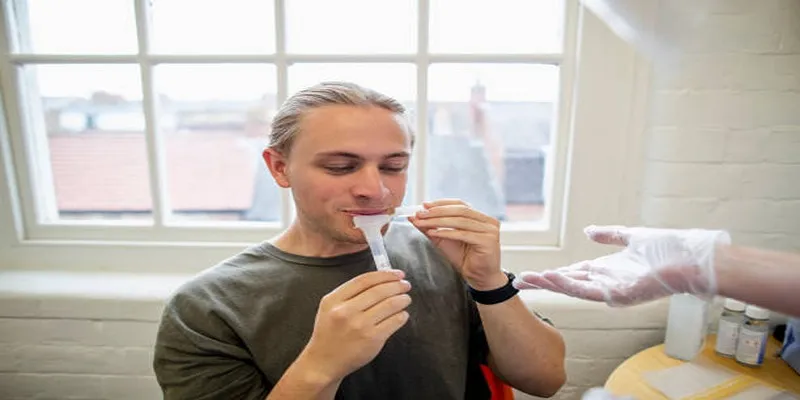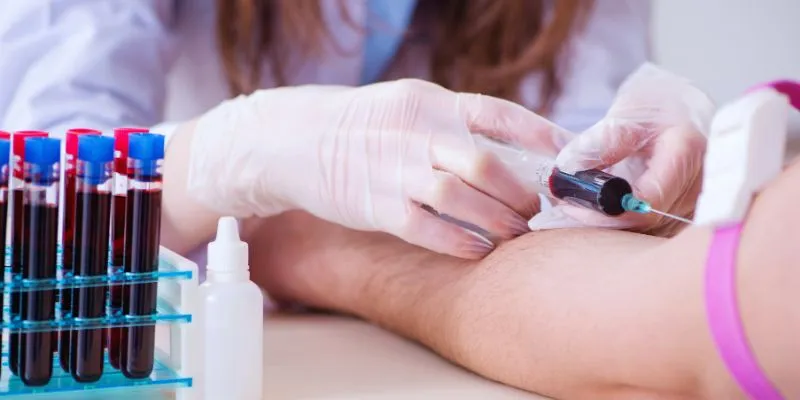Factors Influencing the pH of Saliva: An In-depth Analysis
Saliva plays a crucial role in maintaining oral health, and its pH level is an important indicator of one’s overall well-being. The pH scale, which ranges from 0 to 14, measures how acidic or alkaline a substance is, with a neutral pH being 7. A balanced pH in saliva helps prevent tooth decay, gum disease, and bad breath by neutralizing acids and providing essential minerals to the teeth. Various factors, including diet, hydration, and stress levels, can influence the pH of your saliva. Understanding the significance of saliva pH and how to maintain it can lead to better oral hygiene and contribute to overall health. In this guide, we’ll explore everything you need to know about the pH of your saliva and its impact on your dental health.
What is Saliva pH?
Saliva pH refers to the measurement of the acidity or alkalinity of your saliva. It is determined by the concentration of hydrogen ions present in your saliva. The more hydrogen ions there are, the lower the pH, and the more acidic your saliva is. On the other hand, a higher concentration of hydroxide ions leads to a higher pH, making your saliva more alkaline.
Importance of Maintaining a Balanced Saliva pH
Having a balanced saliva pH is crucial for maintaining good oral health. A neutral or slightly basic pH (7-8) helps prevent enamel erosion and tooth decay caused by acidic foods and drinks. A balanced pH also promotes remineralization, which is essential for repairing any damage to tooth enamel. An acidic saliva pH (below 6) can lead to a higher risk of tooth decay, enamel erosion, and even bad breath. Conversely, an alkaline pH (above 8) can contribute to plaque formation and create an environment for harmful bacteria to thrive.
Factors that Affect Saliva pH

Several factors can influence the pH of your saliva, including:
- Diet: Foods and drinks high in sugar, carbohydrates, and acids can lower saliva pH levels.
- Hydration: Not drinking enough water or having a dry mouth can decrease salivary flow and cause a more acidic environment.
- Stress: High-stress levels can lead to increased acidity in the body, affecting saliva pH levels.
- Medications: Certain medications can alter saliva pH and decrease its production, leading to a more acidic environment.
It is important to be aware of these factors and make necessary changes to maintain a balanced saliva pH.
Normal pH Range of Saliva
The normal saliva pH range for a healthy individual is between 6.5 to 7.5, with an average of 7. This range ensures that the mouth stays in a slightly basic and balanced state, allowing it to perform its essential functions effectively. However, the saliva pH can vary throughout the day due to factors such as meal times and oral hygiene practices.
How to Test Your Saliva pH?
You can easily test your saliva pH at home using a pH strip or litmus paper. These strips change color according to the pH level of your saliva, providing an accurate measurement. It is recommended to test your saliva before and after eating or drinking to see how different foods and drinks affect your salivary pH.
Implications of Altered Saliva pH
An imbalance in saliva pH levels can have several implications, including:
- Tooth Decay: Acidic saliva can erode tooth enamel, leading to cavities and decay.
- Gum Disease: An acidic environment in the mouth can also increase the risk of gum disease by damaging gum tissue.
- Bad Breath: High acidity in saliva can contribute to bad breath by promoting bacterial growth.
- Digestive Issues: Saliva helps neutralize stomach acid when we swallow. An acidic saliva pH can lead to digestive problems such as acid reflux and heartburn.
It is essential to maintain a balanced saliva pH to prevent these potential issues.
Tips to Maintain a Balanced Saliva pH

Several steps can help you maintain a healthy balance of your saliva pH:
- Hydrate: Drinking enough water can help keep your salivary flow consistent and prevent dry mouth.
- Follow a Balanced Diet: Limiting sugary, acidic, and processed foods can contribute to a more balanced saliva pH.
- Practice Good Oral Hygiene: Brushing twice a day with fluoride toothpaste and flossing daily can help maintain a neutral saliva pH.
- Manage Stress Levels: Engaging in stress-relieving activities such as meditation or exercise can help reduce acidity levels in the body.
It is also recommended to consult with your dentist if you experience frequent acid reflux or have underlying health conditions that may affect your saliva pH. Your dentist may recommend additional strategies tailored to your specific needs.
Monitoring and Maintaining Healthy Saliva pH
Monitoring and maintaining a healthy saliva pH is crucial for good oral health. It is a simple process that can provide valuable insights into your overall well-being. By understanding the factors that affect saliva pH and making necessary changes to maintain a balanced level, you can prevent potential dental issues and contribute to better overall health. Therefore, it is important to be aware of your saliva pH and take proactive steps towards keeping it balanced for optimal oral health. If you have any concerns about your saliva pH or notice any significant changes, please consult with your dentist or healthcare provider for proper diagnosis and treatment.
Final Thoughts
The pH of your saliva plays a significant role in maintaining good oral health. A balanced saliva pH prevents tooth decay, gum disease, and bad breath while promoting remineralization and proper digestion. By staying hydrated, following a balanced diet, practicing good oral hygiene, and managing stress levels, you can maintain a healthy balance of your saliva pH. Regularly monitoring and making necessary changes to keep your saliva pH within the normal range can lead to improved dental health and overall well-being. If you have any concerns or notice any significant changes in your saliva pH, don’t hesitate to consult with your dentist for appropriate guidance. Remember, prevention is always better than cure!











